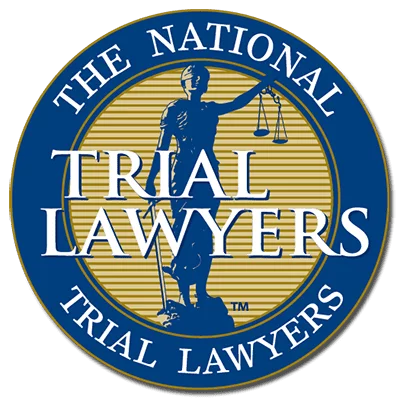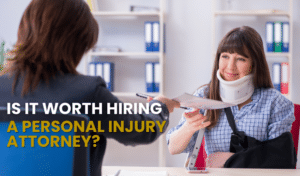Categories Of Product Liability
Product liability lawsuit is a complex legal concept that encompasses various categories of liability when it comes to manufacturing defects or defective products. Here are the four primary categories commonly recognized in product liability cases:
Design Defect:
A design defect refers to a flaw or inadequacy in the original design of a product. It means that even if the product is manufactured perfectly and used as intended, it can be considered as a dangerous or defective product which poses an inherent risk to the users. In such cases, the design itself is considered inherently flawed, making the product unreasonably unsafe.
Manufacturing Defect:
A manufacturing defect occurs during the production or assembly process of a product. It means that a product manufacturers’ design is sound, but an error or deviation in the manufacturing process causes it to deviate from the intended specifications or performance standards making it a dangerous product. These design defects are not present in all units of the product but affect only a specific batch or a limited number of units.
Failure to Warn:
Failure to warn, also known as inadequate warning or insufficient instruction, relates to a situation where consumer products does not come with appropriate warning labels or instructions regarding potential risks or dangers associated with its use. If a product has inherent risks that are not obvious to the user, manufacturers are required to provide clear warnings or instructions to prevent harm.
Breach of Warranty:
Breach of warranty occurs when consumer products does not meet the promises or guarantees made by the negligent companies or sellers regarding its quality, performance, or fitness for a particular purpose. This can involve both express warranties (explicitly stated) and implied warranties (understood by law). If a product fails to meet these warranties, the manufacturer or seller may be held liable.
Who Is Liable In A Product Liability Action?
According to most Dallas product liability attorneys, multiple parties may be held liable in a product liability action depending on the circumstances. The primary parties typically considered for liability are the manufacturer, supplier, and seller. Let’s explore the roles and potential liabilities of each:
Manufacturer: The manufacturer of dangerous products is generally considered the most common and significant party responsible for defective product cases. They are involved in the design, production, and distribution of the product. If a defect in the product’s design or manufacturing process leads to harm or injury to a consumer, the manufacturer may be held liable. This leads to cases involving both the company that directly produces the product and any component manufacturers involved in its assembly.
Supplier: The supplier or distributor of a product plays a crucial role in the distribution chain. They act as intermediaries between the manufacturer and the end consumer. In certain situations, suppliers may be held liable for defects or failures associated with the product they distribute if they are found to have played a role in creating the defect (e.g. altering the design) or if they failed to detect the defect before distributing the product.
Seller: The seller refers to the entity or individual who sells the product to the end consumer. This can include retailers, wholesalers, or online marketplaces. While the liability of sellers may vary depending on jurisdiction and specific circumstances, they can be held accountable if they are deemed negligent in knowingly selling a defective product or if they make false or misleading representations about the product that causes serious injury.
Strict Product Liability Vs. Negligence
Elements of strict product liability and negligence are two different legal principles used in determining liability in various areas of law, including product liability. Here’s an explanation of each:
Strict Liability: Strict liability is a legal doctrine that holds a party responsible for damages or injuries caused by their actions or products, regardless of fault or negligence. Under strict liability, the focus is on the product itself and whether it is unreasonably dangerous or defective. It doesn’t require the injured party to prove that the defendant acted negligently or intended to cause harm. Instead, the injured party must demonstrate that the product was defective and that the defect caused their injury.
Strict liability is often applied in product liability cases, as it places the burden of ensuring product safety on the manufacturer or seller. Even if the manufacturer took reasonable precautions and followed all industry standards, they can still be held strictly liable for injuries resulting from a defective product.
Negligence: Negligence is a legal concept that focuses on the conduct of a party and requires demonstrating that the defendant acted negligently, breaching their duty of care, which directly caused the plaintiff’s injuries or damages. To establish negligence, the injured party must prove four elements: duty, breach of duty, causation, and damages. Negligence involves a failure to exercise reasonable care, resulting in harm to another party.
In product liability cases based on negligence, the injured party must demonstrate that the manufacturer, supplier, or seller failed to exercise reasonable care in the design, manufacturing, or distribution of the product, leading to the defect and subsequent injury.
What Are Some Specifics For Filing A Texas Products Liability Case?
Filing a products liability case with the help of experienced product liability attorneys in Texas involves adhering to specific requirements and procedures. While it’s important to consult with an attorney who has previously litigated product liability cases in Texas,, here are some key specifics to consider when filing a products liability case in Texas:
Who is the manufacturer of the product:
Majority of the products in the United States are either designed or manufactured outside of the United States and Texas. It is important that we find the manufacturer immediately in order to send the appropriate correspondence to the manufacturer to preserve all evidence. In addition if the manufacturer is a foreign entity or out of state entity,, in order to be able to sue the manufacturer in Texas we have to establish that the manufacturer meets the Minimum Contact requirements under federal law.
Statute of Limitations:
In Texas, there is a statute of limitations that sets a time limit within which a product liability lawsuit settlements must be filed. Generally, the statute of limitations for product liability cases in Texas is two years from the date of the serious injuries obtained or discovery of the injury caused by the defective product. It’s crucial to initiate legal proceedings within this timeframe to preserve your right to seek compensation.
Strict Liability and Negligence Claims:
A Texas product liability attorney can help you pursue a product liability claim based on strict liability or negligence. Under strict liability, you need to demonstrate that the product was defective and that the defect caused your injuries or damages. Negligence claims require proving that the manufacturer, supplier, or seller acted negligently in the design, manufacturing, or distribution of the product, resulting in your injuries or damages.
Identification of Liable Parties:
Identifying the parties who may be held liable is an important step in a products liability case. Potentially liable parties can include the product manufacturer, component manufacturers, distributors, wholesalers, and retailers. Your product liability attorney inTexas will work to determine the responsible parties based on the facts of your case.
Product Defects:
To establish a products liability claim, you need to demonstrate the presence of a defect in the product. There are three types of defects recognized in Texas product liability cases: design defects, manufacturing defects, and marketing defects (failure to warn or inadequate instructions). Your attorney will help gather evidence to support your claim by establishing the existence of a defect.
Evidence and Expert Witnesses:
Building a strong case requires collecting relevant evidence and, in some instances, expert testimony. Your attorney will help gather documents, medical records, product specifications, and any other evidence that supports your claim. Expert witnesses, such as engineers or medical professionals, may be consulted to provide specialized knowledge and opinions regarding the defect and its impact.
Damages:
In a products liability case, you can seek various types of damages, including medical expenses, lost wages, pain and suffering, and property damage. It’s crucial to document and quantify your damages accurately to seek appropriate compensation.
Filing the Lawsuit and Legal Process:
Once you have gathered the necessary evidence and consulted with your attorney, they will assist you in filing the lawsuit in the appropriate Texas court. The legal process will involve various stages, including discovery, pretrial motions, settlement negotiations, and potentially a trial if a settlement cannot be reached.
How Long Do I Have To File A Product Liability Claim For Dangerous and Defective Products In Texas?
In Texas, products liability coverage claims are subject to a statute of limitations, which determines the time period within which a lawsuit must be filed. The statute of limitations for product liability cases in Texas is generally two years. Here are some key points to understand regarding the time limits for filing a product liability claim in Texas:
Statute of Limitations Duration:
The general statute of limitations for product liability cases in Texas is two years from the date of the injury or the date on which the injury was discovered, or should have been discovered, through reasonable diligence. This means that you typically have two years from the time you were injured or became aware of the injury to file a lawsuit.
Discovery Rule:
In some cases, it may not be immediately apparent that a product caused an injury or that the injury was due to a defect. The discovery rule allows for the statute of limitations to start from the date the injury is discovered or reasonably should have been discovered. However, the discovery rule has limitations, and it is best to consult with an attorney to determine its applicability to your specific situation.
Tolling of the Statute of Limitations:
Certain circumstances may pause or “toll” the running of the statute of limitations. For example, if the injured party is a minor or has a mental disability, the statute of limitations may be tolled until they reach the age of majority or regain mental competency. Additionally, if the defendant engaged in fraudulent conduct that prevented the injured party from discovering the injury or defect, the statute of limitations may be tolled as well.
Exceptions and Special Circumstances:
There are specific exceptions and nuances to the statute of limitations in product liability cases that can vary depending on the circumstances. For example, if the claim involves injuries caused by exposure to toxic substances, there may be different time limits and discovery rules that apply. Consulting with an attorney experienced in product liability law in Texas will help determine the precise time frame applicable to your case.
What Is A Product Liability Action?
A product liability action refers to a legal claim or lawsuit filed by an individual or entity seeking compensation for harm or damages caused by a product liability negligence. When a product is defective and causes injury or damage, the injured party may pursue a product liability action to hold the responsible parties accountable and seek financial compensation for their losses. Here are the main types of product liability actions:
Personal Injury: Personal injury claims are the most common type of product liability action. These claims arise when a defective product causes physical harm, injury, or illness to an individual. The injured party seeks compensation for medical expenses, pain and suffering, lost wages, and other damages resulting from their injuries.
Wrongful Death: In cases where a defective product causes someone’s death, a wrongful death claim may be filed. The surviving family members or representatives of the deceased individual pursue compensation for their loss, including funeral expenses, loss of financial support, and emotional distress.
Injury or Damage to Real or Personal Property: Product liability actions can also involve damage or loss of property caused by a defective product. This may include damage to real estate, vehicles, or other personal belongings.
Economic Loss: Economic loss claims focus on financial damages incurred due to a defective product. This can include financial losses resulting from the product’s failure to perform as intended, loss of business revenue, or additional expenses incurred to fix or replace the defective product.
Declaratory, Injunctive, or Other Equitable Relief: In some instances, a product liability action may seek non-monetary remedies such as declaratory judgments, injunctive relief, or other equitable remedies. These actions aim to obtain court orders to require the manufacturer or responsible party to take corrective actions, provide warnings, or cease the distribution of the defective product.
Steps Should You Take If You’ve Purchased A Defective Product According to Product Liability Attorneys
If you have purchased a defective product, there are several steps you can take to protect your rights and seek a resolution. Here are the recommended steps to follow:
Document the Defect:
Take photographs or videos that clearly show the defect or issue with the product. Make sure to document any damages caused by the defect as well. This evidence will be useful in supporting your claim later on.
Preserve the Evidence:
Keep the product in its current condition and preserve any packaging, receipts, instruction manuals, or warranty documents associated with the purchase. These items will be important when presenting your case.
Review the Warranty:
Check if the product is covered by a warranty or guarantee. Review the terms and conditions to understand the warranty coverage, duration, and any specific steps required for filing a claim. Follow the instructions provided to initiate the warranty claim process.
Contact the Seller or Manufacturer:
Reach out to the seller or manufacturer of the defective product to report the issue. Provide a clear and detailed explanation of the defect, including any supporting evidence you have documented. Be prepared to provide information such as the date of purchase, product details, and proof of purchase.
Request a Refund, Repair, or Replacement:
Depending on the circumstances, you may be entitled to a refund, repair, or replacement of the defective product. Clearly communicate your preferred resolution and seek appropriate compensation for any damages or losses you have incurred due to the defect.
Keep a Record of Communication:
Maintain a record of all communication with the seller or manufacturer, including dates, names of representatives you spoke with, and a summary of the discussions. This documentation will be useful if you need to escalate the matter or if legal action becomes necessary.
Consult with an Attorney:
If the defect has caused significant harm, resulted in substantial financial loss, or the seller/manufacturer is uncooperative, it may be advisable to consult with an attorney whois experienced in litigating product liability or consumer law. They can provide personalized legal advice, evaluate your case, and guide you through the legal process if a lawsuit becomes necessary.
How Much Compensation Is Available For Defective Products?
The amount of compensation available for defective products can vary significantly based on several factors, including the nature and extent of the harm or damages caused by the defect. Here are some key considerations regarding compensation for defective products:
Severity of Harm:
The severity of the harm or injuries caused by the defective product can significantly impact the potential compensation. If the defect resulted in catastrophic injuries, permanent disabilities, or significant emotional trauma, the compensation awarded is likely to be higher to account for the long-term consequences.
Comparative Negligence:
Some jurisdictions follow the principle of comparative negligence, which means that if the injured party is found partially responsible for the harm caused by the defective product, the compensation may be reduced proportionately. The specific laws and rules governing comparative negligence vary by jurisdiction.
Punitive Damages:
In certain cases, punitive damages may be awarded to punish the manufacturer or seller for particularly reckless or intentional conduct. Punitive damages are meant to deter future misconduct and can be significant but are generally only awarded in cases of extreme negligence or intentional harm.
Settlement vs. Trial Verdict:
Many product liability cases are resolved through settlements, where the parties reach an agreement outside of court. The compensation amount in settlements can vary depending on various factors, including the strength of the evidence, the perceived risks of going to trial, and the negotiating skills of the parties involved. If the case goes to trial, the compensation awarded will be determined by the judge or jury based on the evidence presented.
Legal Factors:
The specific laws and regulations governing product liability claims in your jurisdiction can influence the available compensation. These laws may place caps or limits on certain types of damages or impose requirements for proving the defect or negligence.
How Chalaki Law Firm’s Product Liability Lawyers In Texas Can Help You With Your Claim?
Chalaki Law Firm’s Dallas based product liability lawyers in Texas can provide invaluable assistance with your claim in several ways:
Case Evaluation and Strategy:
The attorneys at Chalaki Law Firm will evaluate the details of your case, including the nature of the defect, the extent of your injuries or damages, and the potential liable parties. They will assess the strength of your claim and develop a strategic plan to pursue maximum compensation on your behalf.
Gathering Evidence:
To build a strong product liability case, evidence is crucial. Chalaki Law Firm’s attorneys have the experience and resources to thoroughly investigate your claim, gather relevant evidence, and consult with expert witnesses when necessary. They will collect documentation, conduct interviews, review medical records, and obtain any other evidence needed to support your case.
Establishing Liability:
Proving liability in a product liability case can be complex. Chalaki Law Firm’s attorneys will meticulously analyze the circumstances surrounding the defect, including design flaws, manufacturing errors, or inadequate warnings. They will identify the responsible parties, whether it’s the manufacturer, distributor, retailer, or other entities in the supply chain, and build a compelling product liability lawsuit case to establish their liability for your injuries or damages.
Knowledge of Texas Laws:
Our product liability law firm has litigated many product liability cases and has in-depth knowledge of Texas laws, statutes, and regulations pertaining to product liability. They stay up to date with the latest legal developments and understand how these laws apply to your case. This knowledge allows them to navigate the legal process efficiently and effectively advocate for your rights under Texas law.
Resources:
As explained before, manufacturer in product liability case are usually out the State or out of the Country. It is extremely expensive to sue a foreign entity in United States. In addition, in order to prove any defect we have to hire multiple experts in order to establish liability. Our firm has extensive financial resources to hire the appropriate experts to establish liability and prove up your damages.
Negotiation and Settlement:
Chalaki Law Firm’s attorneys are skilled negotiators who will strive to achieve a fair settlement on your behalf. They will engage with the opposing parties, including insurance companies and defense attorneys, and negotiate for the compensation you deserve. Their goal is to ensure your rights are protected and that you receive appropriate compensation for your injuries, damages, and losses. Furthermore, a free consultation is available for anyone to avail.
Trial Representation:
If your case proceeds to trial, Chalaki Law Firm’s Dallas product liability lawyers are experienced trial attorneys who will advocate for your rights in the courtroom. They will present your case persuasively, cross-examine witnesses, and argue for the full extent of your damages before a judge or jury. Their courtroom experience and litigation skills are invaluable assets in seeking a favorable outcome in your case.
Compassionate Support:
Chalaki Law Firm understands the emotional and physical toll that a defective product can have on your life. Their attorneys provide compassionate support throughout the legal process, guiding you every step of the way. They will address your concerns, answer your questions, and provide personalized attention to ensure you feel supported and informed.
By engaging Chalaki Law Firm’s product liability lawyers in Texas, you can benefit from their experience, legal expertise, and commitment to seeking justice for those harmed by defective products. They will fight tirelessly on your behalf, aiming to secure the compensation you deserve while providing compassionate support during this challenging time.
FAQ
The responsibility of retailers when it comes to defective products can differ based on where they operate and the specific details of the situation. Basically, retailers can be held accountable if they sell products that turn out to be defective. There are legal principles like product liability laws and consumer protection laws that come into play. However, the level of liability can depend on factors like the retailer’s position in the distribution chain and whether they were aware of the product’s defect.
In a defective product case, the damages you can recover depend on
various factors, such as where you are and the specifics of your situation. Typically, there are a few types of damages you could seek: compensatory damages, economic damages, non-economic damages, punitive damages.
To prove a product is defective, you need to gather evidence and establish a few key points such as manufacturing defects, design defect and failure to warn.
If you’ve been hurt and think you have a product liability case, here’s what you should do first: Seek medical attention, preserve your evidence, consult with a product liability attorney, document everything, and follow legal advice. Always keep in mind that time is of the essence in product liability cases, s there may be statutes of limitations that limit the time you have to file a lawsuit. Therefore, it’s important to take action promptly and seek legal counsel as soon as possible to protect your rights and interests.









